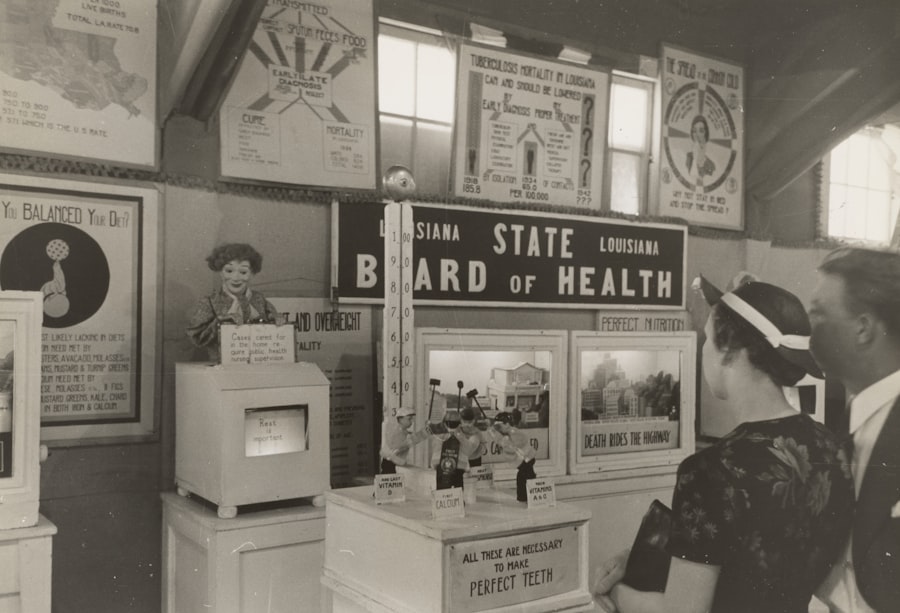Healthcare marketing plays a pivotal role in shaping the perception and accessibility of medical services. In an era where patients are more informed and empowered than ever, the need for effective communication strategies has become paramount. The healthcare landscape is increasingly competitive, with numerous providers vying for the attention of potential patients.
This competition necessitates a robust marketing approach that not only highlights the unique offerings of a healthcare provider but also builds a connection with the community it serves. By effectively communicating their value proposition, healthcare organizations can differentiate themselves, attract new patients, and retain existing ones. Moreover, healthcare marketing is not solely about promoting services; it is also about educating the public.
Many patients may not fully understand the complexities of their health conditions or the treatments available to them. Through targeted marketing efforts, healthcare providers can disseminate valuable information that empowers patients to make informed decisions about their health. This educational aspect fosters a sense of trust and reliability, which is crucial in an industry where patients often feel vulnerable.
By positioning themselves as trusted sources of information, healthcare organizations can enhance their reputation and encourage patient loyalty.
Key Takeaways
- Healthcare marketing is essential for building brand awareness and patient trust.
- Selecting a specialized healthcare marketing firm ensures tailored strategies for your brand.
- Effective marketing strategies include patient education, community engagement, and clear communication.
- Digital marketing tools like SEO, social media, and telehealth promotion are vital in healthcare.
- Measuring marketing success involves tracking patient acquisition, engagement metrics, and ROI.
Choosing the Right Healthcare Marketing Firm for Your Brand
Selecting an appropriate healthcare marketing firm is a critical decision that can significantly impact a provider’s outreach and engagement efforts. The ideal firm should possess a deep understanding of the healthcare landscape, including regulatory considerations, patient demographics, and industry trends. A firm that specializes in healthcare marketing will have the expertise to navigate the unique challenges that come with promoting medical services, such as compliance with HIPAA regulations and the need for sensitivity in messaging.
It is essential to evaluate potential firms based on their experience, case studies, and client testimonials to ensure they align with your organization’s values and goals. Additionally, the right marketing firm should demonstrate a commitment to collaboration and transparency. Effective healthcare marketing requires a partnership where both parties work together to develop strategies that resonate with the target audience.
This collaboration often involves in-depth discussions about brand identity, patient personas, and desired outcomes. A firm that prioritizes open communication will be better equipped to adapt its strategies based on feedback and evolving market conditions. Furthermore, assessing a firm’s technological capabilities is crucial; in today’s digital age, a marketing firm should leverage data analytics and innovative tools to optimize campaigns and measure their effectiveness.
Strategies for Effective Healthcare Marketing

To achieve success in healthcare marketing, organizations must employ a variety of strategies tailored to their specific audience and objectives. One effective approach is content marketing, which involves creating informative and engaging content that addresses the needs and concerns of patients. This can include blog posts, videos, infographics, and webinars that provide valuable insights into health topics, treatment options, and wellness tips.
By positioning themselves as thought leaders in their field, healthcare providers can build trust with their audience while also improving their search engine visibility. Another essential strategy is community engagement. Healthcare organizations can enhance their visibility and reputation by actively participating in local events, health fairs, and educational seminars.
These initiatives not only allow providers to showcase their services but also demonstrate their commitment to the well-being of the community. Additionally, partnerships with local businesses or non-profit organizations can amplify outreach efforts and foster goodwill among potential patients. Engaging with the community helps humanize healthcare providers and creates a sense of connection that can lead to increased patient loyalty.
Leveraging Digital Marketing in the Healthcare Industry
| Metric | Description | Example Value | Importance |
|---|---|---|---|
| Website Traffic | Number of visitors to healthcare website | 150,000 monthly visits | High – Indicates reach and interest |
| Conversion Rate | Percentage of visitors who book appointments or request info | 5.2% | High – Measures effectiveness of marketing |
| Cost Per Lead (CPL) | Average cost to acquire a potential patient lead | 12 | Medium – Helps optimize marketing spend |
| Social Media Engagement | Likes, shares, comments on healthcare posts | 8,500 interactions/month | Medium – Builds brand awareness and trust |
| Email Open Rate | Percentage of recipients who open healthcare emails | 28% | Medium – Indicates interest in communication |
| Patient Retention Rate | Percentage of patients returning for follow-up care | 75% | High – Reflects patient satisfaction and loyalty |
| Search Engine Ranking | Position of healthcare website on search results | Top 3 for key terms | High – Drives organic traffic |
| Online Reviews & Ratings | Average patient rating on review platforms | 4.6 out of 5 | High – Influences patient decisions |
Digital marketing has revolutionized how healthcare organizations connect with patients and promote their services. With the majority of consumers turning to online platforms for information about health-related topics, having a strong digital presence is no longer optional; it is essential. Search engine optimization (SEO) plays a crucial role in ensuring that healthcare providers appear prominently in search results when potential patients seek medical information or services.
By optimizing website content with relevant keywords and ensuring a user-friendly experience, organizations can attract more visitors to their sites. Social media platforms also offer unique opportunities for healthcare marketing. These channels allow providers to engage directly with patients, share educational content, and promote events or services in real-time.
For instance, a hospital might use Facebook Live to host Q&A sessions with medical professionals, addressing common health concerns while fostering community interaction. Additionally, social media advertising can target specific demographics based on location, interests, and behaviors, ensuring that marketing messages reach the right audience effectively. The ability to track engagement metrics on these platforms further enables healthcare organizations to refine their strategies based on real-time feedback.
Building Trust and Credibility in Healthcare Marketing
Trust is a cornerstone of effective healthcare marketing. Patients are more likely to choose providers they perceive as credible and reliable. To build this trust, healthcare organizations must prioritize transparency in their communications.
This includes providing clear information about services offered, pricing structures, and patient experiences. Testimonials from satisfied patients can serve as powerful endorsements that enhance credibility. By showcasing real stories of positive outcomes and compassionate care, providers can create an emotional connection with potential patients.
Moreover, maintaining an ethical approach in marketing practices is vital for establishing long-term trust. Misleading claims or exaggerated promises can lead to skepticism and damage a provider’s reputation. Instead, healthcare organizations should focus on delivering accurate information backed by research and clinical evidence.
Engaging with patients through follow-up surveys or feedback forms can also demonstrate a commitment to continuous improvement and patient satisfaction. When patients feel heard and valued, they are more likely to trust the organization and recommend it to others.
Case Studies: Successful Healthcare Marketing Campaigns

Examining successful healthcare marketing campaigns provides valuable insights into effective strategies and approaches. One notable example is the “Get Covered” campaign launched by the Centers for Medicare & Medicaid Services (CMS) during the rollout of the Affordable Care Act (ACA). This campaign utilized a multi-channel approach that included television ads, social media outreach, and community events to educate individuals about their health insurance options.
By focusing on personal stories and relatable scenarios, the campaign resonated with diverse audiences and significantly increased enrollment rates. Another compelling case study is Cleveland Clinic’s “Health Essentials” blog, which has become a leading source of health information online. The blog features articles written by medical professionals on various health topics, from nutrition to chronic disease management.
By providing high-quality content that addresses common health concerns, Cleveland Clinic has positioned itself as a trusted authority in healthcare while driving traffic to its website. This strategy not only enhances patient engagement but also fosters a sense of community among readers who seek reliable health information.
The Future of Healthcare Marketing: Trends and Innovations
As technology continues to evolve, so too does the landscape of healthcare marketing. One emerging trend is the increased use of artificial intelligence (AI) in personalizing patient experiences. AI-driven tools can analyze patient data to deliver tailored content and recommendations based on individual preferences and behaviors.
This level of personalization enhances engagement and improves patient satisfaction by ensuring that communications are relevant and timely. Additionally, telehealth services have gained significant traction in recent years, particularly following the COVID-19 pandemic. As more patients seek virtual care options, healthcare marketing strategies must adapt accordingly.
Promoting telehealth services through targeted campaigns can help providers reach patients who may be hesitant to visit physical locations due to safety concerns or convenience factors. Emphasizing the benefits of telehealth—such as accessibility and flexibility—can attract new patients while retaining existing ones who appreciate these modern solutions.
Measuring the Success of Healthcare Marketing Efforts
To ensure that healthcare marketing initiatives are effective, organizations must implement robust measurement frameworks that assess performance against defined goals. Key performance indicators (KPIs) such as website traffic, conversion rates, social media engagement metrics, and patient acquisition costs provide valuable insights into campaign effectiveness. By analyzing these metrics regularly, healthcare providers can identify areas for improvement and adjust their strategies accordingly.
Furthermore, patient feedback plays a crucial role in evaluating marketing success. Surveys and reviews can offer qualitative insights into how well marketing messages resonate with patients and whether they align with their expectations. Understanding patient perceptions allows organizations to refine their messaging and enhance overall patient experience.
Ultimately, a data-driven approach combined with genuine patient engagement will enable healthcare providers to optimize their marketing efforts continuously while fostering lasting relationships with their communities.



